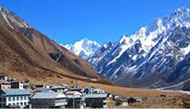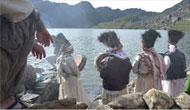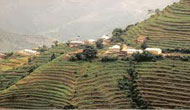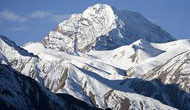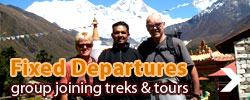
Langtang Region Trekking
Langtang region, protected as Langtang National Park, is a very popular tourist destination to the north of Kathmandu, the capital of Nepal. Langtang is one of the nearest trekking sites from the capital. It offers a unique experience because of its combination of natural beauty and very rich cultural heritage.
Langtang has over 70 glaciers of different sizes, including the Langtang and Ganesh Himal mountain ranges and high-altitude lakes such as Gosaikunda, Parvatikund, Bhairavkunda, Dudhakunda, etc. The Langtang comprises many peaks. They are: Langtang Lirung (7246 m), Dorje Lakpa (6966 m), Morimoto (6750 m), Dragmarpo Ri (6578 m), Kimshung (6500 m), Langshisha Ri (6427 m), Ganchempo (6387 m), Naya Kanga (5846 m), Yala Peak (5520 m), Surya Peak (5144 m), Tsergo Ri (4982 m),The highest peak is Langtang Lirung (7246 m).
The Langtang National Park is the second-largest national park of Nepal's ten parks. Forest covers approximately 25% of the park.The park, which extended up to the Tibetan border, is a good example of biodiversity, containing a wide variety of climate zones from subtropical to alpine. The park comprises around 15 forest types and 3000 species of flowering plants, including oaks, blue pines, and various types of rhododendron. This is also known as a rich area for medicinal plants. In addition, 32 mammals and 283 species of birds are found in the park, including the Himalayan black bear, the clouded leopard, the musk deer, the snow leopard, the wild dog, etc.
Among the 4,500 people living inside the Langtang National Park, Tamang indigenous peoples make up the majority of the residents in this area. Therefore, the Langtang area is culturally rich as it consists of Tamang art and culture, including the Buddhist spiritual sites Kyangin Gompa and Singgompa and the historic fort of Rasuwagadi on the China-Nepal border. The Gosaikunda lakes, sacred to Hindus, in the park area are visited by both Hindus and Buddhists in August every year.
The timber and firewood-dependent lives of most people here have been interesting to tourists as they present the distinct social and economical aspects of society. In some places, there are homestays available to learn about rural life and local culture. There are unverified stories of Yeti sightings.
Passing through the beautiful villages with traditional small huts and green fields, in around four hours we can reach Dhunche from Kathmandu by car or jeep. The magnificent journey to the summit of Langtang starts from Dhunche.
We offer a number of activities to tourists in the Langtang area, of which trekking, climbing, and white-water rafting are the most popular.
Trekking style: We can stay in beautiful hotels with clean rooms on most trekking trails. We can go teahouse or lodge trekking. There is the option of going on a camping trip if tourists so desire.


